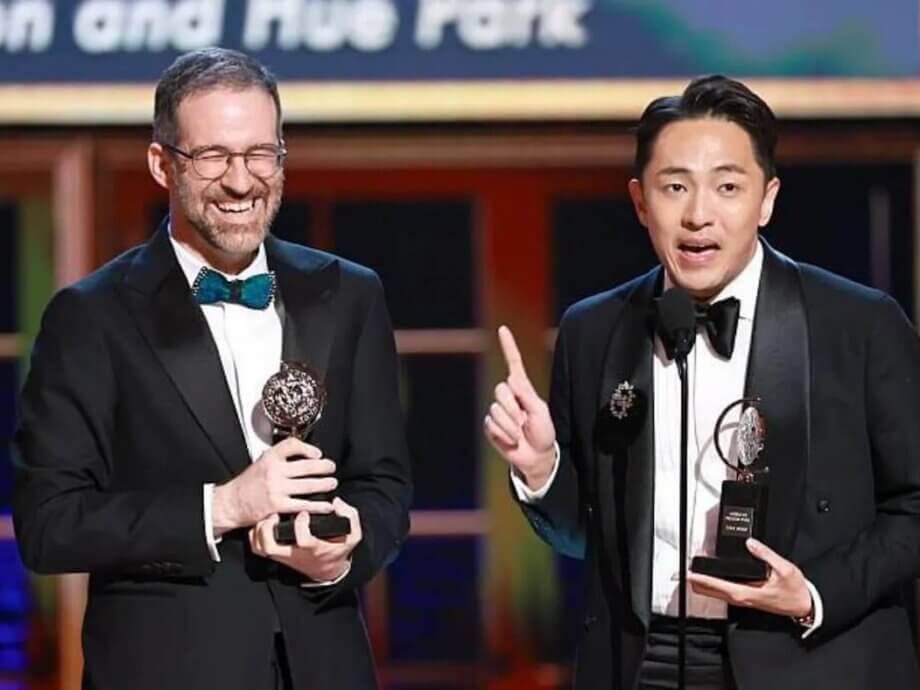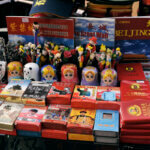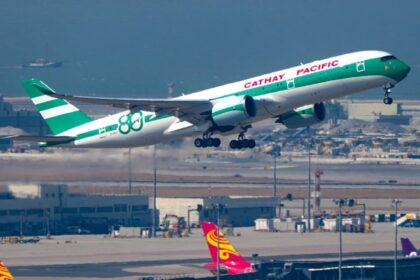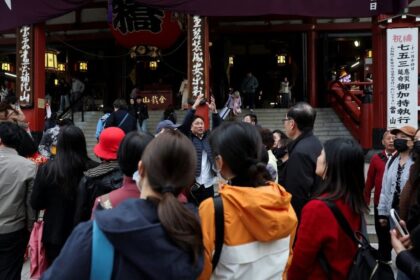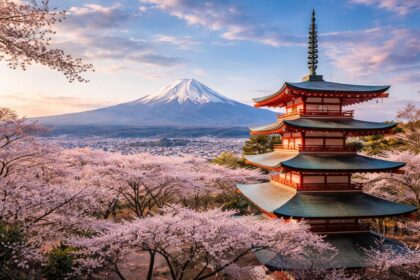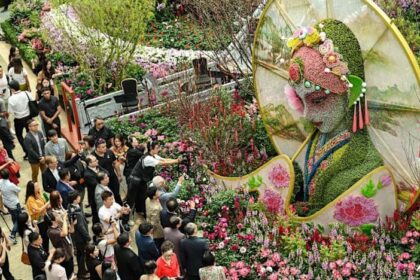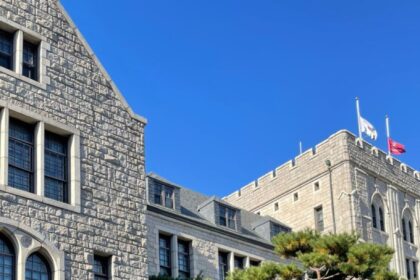South Korea’s Breakthrough at the Tony Awards: A New Era for Global Musical Theater
In a landmark moment for both Broadway and South Korea, the musical Maybe Happy Ending swept the 78th Annual Tony Awards, taking home six trophies including the coveted Best Musical. This victory marks the first time an original South Korean production has won Broadway’s top honor, signaling a new era for international theater and the global influence of Korean culture. The show’s success is not just a win for its creators but a testament to the growing power of the Korean Wave, or Hallyu, in the world’s most competitive entertainment markets.
- South Korea’s Breakthrough at the Tony Awards: A New Era for Global Musical Theater
- What Is ‘Maybe Happy Ending’ About?
- From Seoul to Broadway: The Making of a Global Hit
- Why Is This Win So Significant for South Korea?
- How Did ‘Maybe Happy Ending’ Stand Out on Broadway?
- The Broader Context: The Korean Wave and Global Entertainment
- What’s Next for ‘Maybe Happy Ending’ and Korean Musicals?
- In Summary
Maybe Happy Ending’s journey from a small theater in Seoul to the bright lights of New York’s Belasco Theatre is a story of artistic vision, cross-cultural collaboration, and the universal language of storytelling. Its triumph at the Tony Awards cements South Korea’s place as a cultural powerhouse, joining the ranks of Korean film, television, and music that have already made history on the global stage.
What Is ‘Maybe Happy Ending’ About?
At its heart, Maybe Happy Ending is a poignant, futuristic romance. The musical follows Oliver and Claire, two outdated HelperBot androids abandoned by their human owners and living in a near-future Seoul. As they navigate loneliness, obsolescence, and the search for meaning, the two robots form an unexpected bond that blossoms into love. Their journey—marked by a road trip to Jeju Island, the last place to see fireflies—explores themes of connection, memory, and what it means to be alive.
The show’s creators, South Korean lyricist and playwright Hue Park and American composer Will Aronson, crafted the musical in both Korean and English, ensuring its story would resonate across cultures. The Broadway production, directed by Tony-winner Michael Arden, stars Darren Criss (best known for Glee) as Oliver and Broadway newcomer Helen J. Shen as Claire. The cast is small—just four onstage actors—but the production’s high-tech set and emotional depth make it feel expansive and immersive.
Universal Themes, Korean Identity
While the premise is rooted in science fiction, the musical’s emotional core is deeply human. Critics and audiences alike have praised its exploration of love, loss, and hope through the lens of artificial intelligence. As Choi Seung-youn, a South Korean musical critic and professor, explained to The Korea Herald:
“This achievement owes much to the show’s universal themes. The story’s portrayal of love and friendship between soon-to-be obsolete beings resonates deeply with audience members.”
At the same time, the show’s distinctly Korean elements—references to Jeju Island, fireflies, and traditional objects like the hwabun (plant pot)—remain intact in the Broadway version, offering international audiences a window into Korean culture.
From Seoul to Broadway: The Making of a Global Hit
The origins of Maybe Happy Ending trace back to 2014, when Hue Park, inspired by Damon Albarn’s song “Everyday Robots” and his own experiences with heartbreak, imagined a world where robots with human-like emotions are left to live out their days alone. Park reached out to his friend Will Aronson, and together they developed the story, pitching it to Seoul’s Wooran Cultural Foundation. The musical premiered in 2016 at Lifeway Hall in DCF Daemyung Cultural Factory, quickly earning critical acclaim and multiple awards in South Korea.
The show’s bilingual nature—written in both Korean and English—allowed it to travel beyond Korea. After several successful revivals at home and productions in Japan and China, the English-language version (initially titled What I Learned from People) won the 2017 Richard Rodgers Award in the United States. Its American debut came at Atlanta’s Alliance Theatre before making its way to Broadway in November 2024.
Bringing a Korean musical to Broadway was no small feat. The production was capitalized at $16 million and faced the challenge of building an audience without the brand recognition of blockbuster adaptations or celebrity-driven vehicles. Yet, glowing reviews, word-of-mouth, and a string of awards—including six Drama Desk Awards and honors from the New York Drama Critics’ Circle and Drama League—propelled the show to the top of the season’s most celebrated productions.
Why Is This Win So Significant for South Korea?
Maybe Happy Ending’s Tony sweep is more than just a personal victory for its creators; it represents a historic breakthrough for Korean performing arts. For decades, Korean musicals have aspired to reach Broadway, with earlier efforts like The Last Empress and Nanta making inroads but never achieving a full-scale commercial run. In recent years, Korean companies have shifted strategies, investing in co-productions and developing original works for international audiences.
This win places South Korea in an elite group of countries whose artists have claimed all four major American entertainment awards: the Oscars (for Parasite), the Emmys (for Squid Game), the Grammys (for soprano Sumi Jo), and now the Tonys. The achievement is a source of immense national pride, as reflected in the outpouring of congratulations from Korean leaders, artists, and fans.
President Lee Jae-myung issued a statement celebrating the win:
“This achievement is by no means the result of a single day’s effort. It is the culmination of the dedication, passion and creative determination shown by our cultural and artistic community over many years. Today’s Tony Award win is not the end, but a new beginning. I will do my utmost to ensure that more Korean artists thrive on the global stage, and that our culture continues to inspire and uplift people around the world.”
The government has pledged to further support the arts, recognizing the role of culture in shaping South Korea’s global image and economy.
How Did ‘Maybe Happy Ending’ Stand Out on Broadway?
In a Broadway season marked by fierce competition and record-breaking box office numbers, Maybe Happy Ending distinguished itself with its originality, emotional resonance, and technical innovation. The show’s set, designed by Dane Laffrey with video design by George Reeve, is one of the most sophisticated ever seen on Broadway, creating a digital world that mirrors the characters’ emotional journeys.
The musical’s score, blending midcentury pop and jazz with contemporary sensibilities, was praised for its delicacy and depth. Will Aronson’s music, enhanced for Broadway audiences, and Hue Park’s lyrics and book, offered a fresh voice in a landscape often dominated by adaptations and jukebox musicals.
Critics lauded the show’s ability to “sneak in a totally original human heartbreaker under cover of sci-fi whimsy,” as The New York Times put it. The cast’s performances, especially Darren Criss’s portrayal of Oliver, were singled out for their vulnerability and nuance.
Industry Impact and Representation
The show’s success is also a milestone for diversity and representation on Broadway. As Choi Seung-youn noted:
“As a musical with a distinctly Korean identity, it also contributed meaningfully to Broadway’s ongoing conversation around diversity and representation.”
This season saw a wide range of voices and perspectives on stage, with many shows led by Asian American, Black, Middle Eastern, and Hispanic actors. Maybe Happy Ending’s win is a powerful affirmation that stories from outside the traditional Broadway canon can resonate with global audiences.
The Broader Context: The Korean Wave and Global Entertainment
Maybe Happy Ending’s Tony triumph is the latest chapter in the ongoing rise of Korean culture worldwide. The past decade has seen Korean content break barriers in film (Parasite), television (Squid Game), and music (BTS, Blackpink), each achieving unprecedented international success. These achievements have not only elevated Korea’s cultural status but have also changed perceptions of what non-English-language and non-Western stories can achieve in global markets.
The musical’s win is particularly significant because it is an original work, not an adaptation or a co-production. It demonstrates that Korean creators can develop stories with universal appeal while maintaining their unique cultural identity. As Sean Patrick Flahaven, chief theatricals executive of Concord Theatricals, observed:
“It’s not so much dependent on being a Korean story as it’s a more universal story. So I think that’s an important aspect to have—that a compelling specific story can have universality as well—and that kind of universality speaks to success in future licensing.”
The show’s licensing potential is already being discussed, with a North American tour scheduled to begin in 2026 and interest in international productions growing.
What’s Next for ‘Maybe Happy Ending’ and Korean Musicals?
With its Tony wins, Maybe Happy Ending is poised for a long Broadway run and a national tour. The original Broadway cast album, released by Ghostlight Records, is available digitally and on vinyl, further expanding the show’s reach. A film adaptation, My Favorite Love Story, premiered in 2023 and may see wider release following the musical’s success.
The show’s creators, Park and Aronson, continue to collaborate on new projects, and their recent musical Il Tenore has also garnered critical acclaim in Korea. Their partnership exemplifies the possibilities of cross-cultural artistic exchange and the growing influence of Korean talent in global theater.
For the Korean musical industry, the success of Maybe Happy Ending is both a validation of decades of effort and a catalyst for future innovation. As more Korean artists and producers look to the international stage, the boundaries of what is possible in musical theater continue to expand.
In Summary
- Maybe Happy Ending made history as the first original South Korean musical to win Best Musical at the Tony Awards, taking home six trophies in total.
- The show tells a universal story of love and connection through the lens of two obsolete helper robots in near-future Seoul, blending science fiction with emotional realism.
- Its journey from a small Seoul theater to Broadway highlights the power of cross-cultural collaboration and the global appeal of Korean storytelling.
- The win cements South Korea’s status as a cultural powerhouse, joining previous triumphs in film, television, and music.
- The musical’s success is a milestone for diversity and representation on Broadway, demonstrating that original, non-Western stories can resonate with international audiences.
- With a national tour and further productions on the horizon, Maybe Happy Ending is set to inspire a new generation of artists and audiences worldwide.


